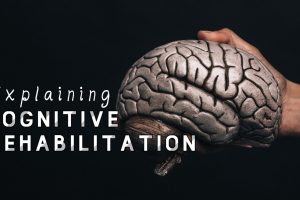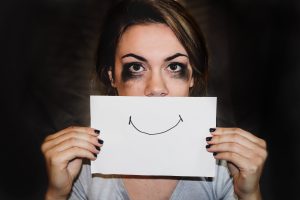Understanding Depression: Major Depressive Disorder

Major Depressive Disorder (MDD) is one of the most common mental health issues across the globe. This article outlines the diagnostic criteria of MDD as per the Diagnostic and Statistical Manual of Mental Disorders, 5th Edition (American Psychiatric Association, 2013).
Diagnostic Criteria
The following diagnostic criteria is used to treat
A. Five (or more) of the following symptoms have been present during the same 2-week period and represent a change from previous functioning: at least one of the symptoms is either (1) depressed mood or (2) loss of interest or pleasure.
Note: Do not include symptoms that are clearly attributable to another medical condition.
1. Depressed mood most of the day, nearly every day, as indicated by either subjective report (e.g., feels sad, empty, hopeless) or observation made by others (e.g., appears tearful). (Note: In children and adolescents, can be irritable mood.)
2. Markedly diminished interest or pleasure in all, or almost all, activities most of the day, nearly every day (as indicated by either subjective account or observation).
3. Significant weight loss when not dieting or weight gain (e.g., a change of more than 5% of body weight in a month), or decrease or increase in appetite nearly every day.
(Note: In children, consider failure to make expected weight gain.)
4. Insomnia or hypersomnia nearly every day.
5. Psychomotor agitation or retardation nearly every day (observable by others, not merely subjective feelings of restlessness or being slowed down).
6. Fatigue or loss of energy nearly every day.
7. Feelings of worthlessness or excessive or inappropriate guilt (which may be delusional) nearly every day (not merely self-reproach or guilt about being sick).
8. Diminished ability to think or concentrate, or indecisiveness, nearly every day (either by subjective account or as observed by others).
9. Recurrent thoughts of death (not just fear of dying), recurrent suicidal ideation without a specific plan, or a suicide attempt or a specific plan for committing suicide.
B. The symptoms cause clinically significant distress or impairment in social, occupational, or other important areas of functioning.
C. The episode is not attributable to the physiological effects of a substance or to another medical condition.
Note: Criteria A-C represent a major depressive episode.
Note: Responses to a significant loss (e.g., bereavement, financial ruin, losses from a natural disaster, a serious medical illness or disability) may include the feelings of intense sadness, rumination about the loss, insomnia, poor appetite, and weight loss noted in Criterion A, which may resemble a depressive episode. Although such symptoms may be understandable or considered appropriate to the loss, the presence of a major depressive episode in addition to the normal response to a significant loss should also be carefully considered. This decision inevitably requires the exercise of clinical judgment based on the individual’s history and the cultural norms for the expression of distress in the context of loss.
D. The occurrence of the major depressive episode is not better explained by schizoaffective disorder, schizophrenia, schizophreniform disorder, delusional disorder, or other specified and unspecified schizophrenia spectrum and other psychotic disorders.
E. There has never been a manic episode or a hypomanic episode.
Note: This exclusion does not apply if all of the manic-like or hypomanic-like episodes are substance-induced or are attributable to the physiological effects of another medical condition.
Common Treatments for MDD in Pakistan
The following are most commonly used methods of treating MDD in Pakistan.
1. Medication
Medication are the most common method of treating MDD in Pakistan. Antidepressants essentially aim to stabilize the serotonin, dopamine, and norepinephrine. These neurotransmitters are known to play a part in regulation of mood. Some antidepressant may have side effect on some people. A psychiatrist can identity which type of antidepressant works best for a particular person (Strock, 2002).
2. Cognitive-Behavioural Therapy (CBT)
Cognitive-Behavioural Therapy (CBT) is type of psychotherapy that is based on the cognitive and behavioural principles which aim to systematically reduce depressive symptoms. CBT poses that there is a definite link between our thoughts, feelings, and behaviours; and that they are constantly reinforcing each other (Strock, 2002). There is a significantly less chance if relapsing after getting CBT. Moreover, the risk if further reduced if CBT is continued during the maintenance phase ((Hollon, 2005).
3. CBT in combination with medication
While medication and CBT alone may be able to treat mild and moderate depression, a combination of the two work best for severe depression (National Institute of Mental Health, 2007). Moreover, this combination usually has better outcomes.
When to Seek Help?
If you feel like you have any of the mentioned symptoms, do not hesitate to contact a professional to learn more about how you are feeling and what can be done to overcome it. If you would like to speak to a professional, you can book an appointment or an online session with Hero Health Care.
By Sadaf Rehman, M.Phil. Psychology
Sources:
American Psychiatric Association. (2013). Diagnostic and statistical manual of mental disorders (DSM-5®). American Psychiatric Publications.
Hollon, S. D., Jarrett, R. B., Nierenberg, A. A., Thase, M. E., Trivedi, M., & Rush, A. J. (2005). Psychotherapy and medication in the treatment of adult and geriatric depression: which monotherapy or combined treatment?. The Journal of Clinical Psychiatry, 66, 455-468
National Institute of Mental Health. (2007). Depression. NIH Publication.
Strock, M. (2002). Depression. National Institute of Mental Health (No. 02-3561). NIH Publication.










12 Comments
Traci Love
September 11, 2023 at 10:05 pmThank you for the auspicious writeup. It in fact was a amusement account it. Look advanced to more added agreeable from you! By the way, how could we communicate?
what do blue pills do
November 28, 2023 at 12:28 pmI am not sure where you’re getting your info, but good topic. I needs to spend some time learning much more or understanding more. Thanks for magnificent info I was looking for this information for my mission.
Jordan Doyle
December 12, 2023 at 5:19 pmHi, i think that i saw you visited my web site thus i came to ?eturn the favor텶 am attempting to find things to improve my web site!I suppose its ok to use some of your ideas!!
Gwen Lee
January 15, 2024 at 9:59 pmI do believe all the ideas you’ve presented for your post. They are really convincing and will certainly work. Nonetheless, the posts are too short for novices. May just you please lengthen them a little from subsequent time? Thanks for the post.
Raymond Garner
January 22, 2024 at 3:48 pmHi my loved one! I wish to say that this post is amazing, nice written and include approximately all vital infos. I’d like to peer more posts like this.
NewGPT
February 3, 2024 at 11:19 amLeave a comment and let us know what your favorite blog post has been so far!
Lennox Addyson Gray
February 9, 2024 at 3:18 amYour blog always puts a smile on my face and makes me feel better about the world Thank you for being a source of light and positivity
Cyrus T. M. Howe
February 11, 2024 at 5:51 amNice blog here! Also your site loads up fast! What host are you using? Can I get your affiliate link to your host? I wish my web site loaded up as quickly as yours lol
Donald Trump
February 14, 2024 at 10:36 pmSomeone has truly played a crucial role in crafting remarkable articles, in my opinion. It’s my initial visit to your website, and thus far, I’m astounded by the meticulous research that went into creating this extraordinary post. Outstanding work! Taylor Swift ~ Leaked News TV.
Alisson Janiya Fernandez
February 23, 2024 at 5:08 amThis blog has opened my eyes to new ideas and perspectives that I may not have considered before Thank you for broadening my horizons
Aubrielle W. Mckee
March 10, 2024 at 6:06 amI always leave this blog feeling inspired and motivated to make positive changes in my life Thank you for being a constant source of encouragement
Jake Armstrong
March 21, 2024 at 1:26 amyou are in reality a just right webmaster. The site loading velocity is incredible. It seems that you are doing any unique trick. In addition, The contents are masterwork. you have performed a wonderful task on this topic!